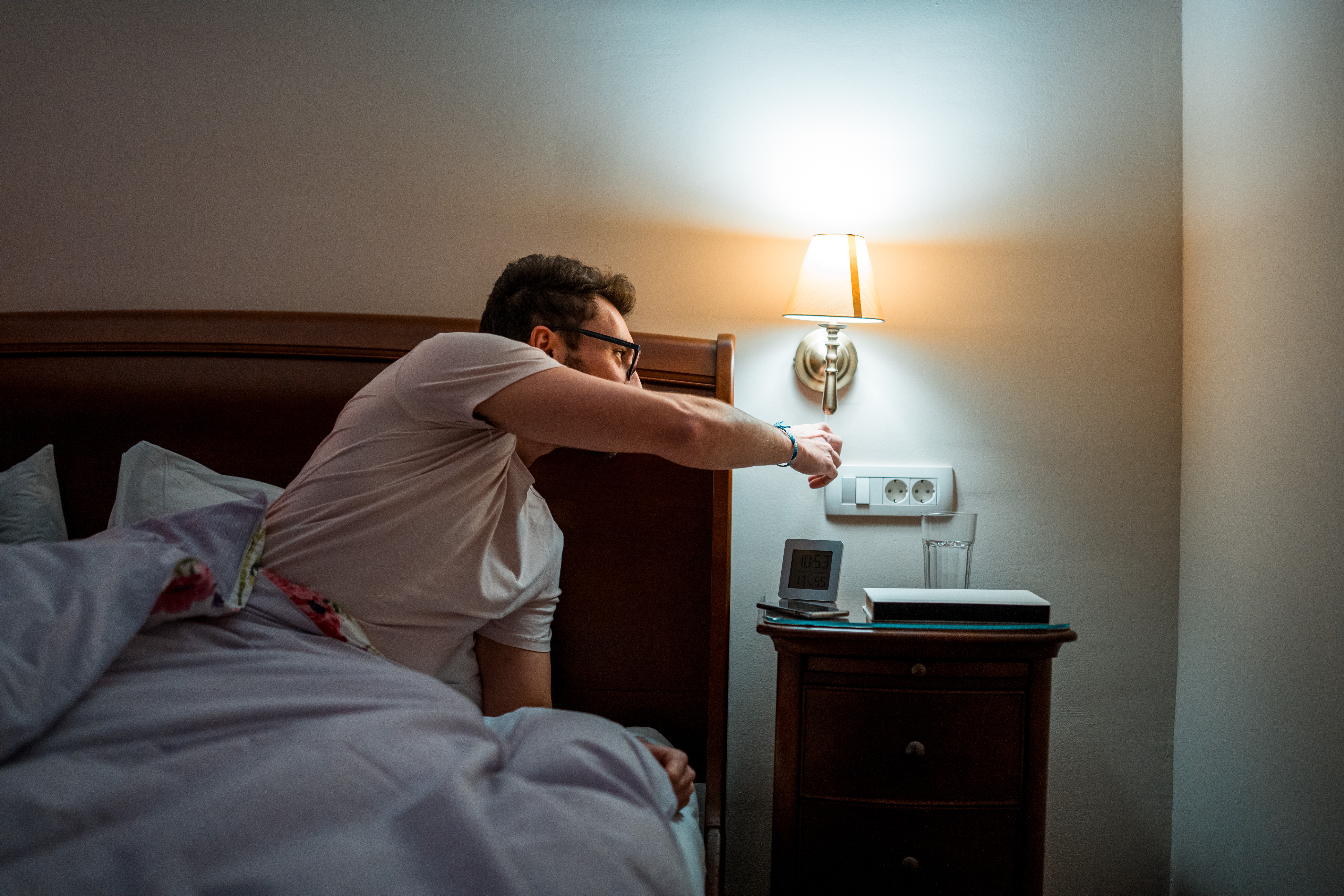Improve Sleep
With some simple adjustments, you can improve your sleep—and your life. Smart sleep strategies can help you perform your job safely, enjoy family and community life, see friends, and even squeeze in sports or other leisure activities.
Better sleep can lead to better health. Members of your household and support network play an important role in achieving this, and may benefit personally from these tactics as well.
Seek Help
If you practice good sleep habits but still don’t sleep as much as you need, you may have a sleep disorder or other medical illness. Treatment can help you sleep and feel better.
Your healthcare provider may suggest that you see a sleep specialist, and refer you to a sleep center in your area.
More Sleep Problems and Their TreatmentYour healthcare provider may suggest that you see a sleep specialist, and refer you to a sleep center in your area.
The Snoring Sickness: Obstructive Sleep ApneaSnoring is the most common symptom of obstructive sleep apnea (OSA), a disorder that affects more than 18 million Americans, most of whom are overweight, middle-aged men.
InsomniaYour healthcare provider may suggest that you see a sleep specialist, and refer you to a sleep center in your area.
 Restless Legs Syndrome and Periodic Limb Movements of Sleep
Restless Legs Syndrome and Periodic Limb Movements of SleepYour healthcare provider may suggest that you see a sleep specialist, and refer you to a sleep center in your area.
 Sleep-related Reflux (Heartburn)
Sleep-related Reflux (Heartburn)Your healthcare provider may suggest that you see a sleep specialist, and refer you to a sleep center in your area.
 Shift Work Disorder
Shift Work DisorderIrregular hours for work and sleep, particularly when they do not sync up with one's body clock, may contribute to development of shift work disorder.
 Narcolepsy
NarcolepsyWhile narcolepsy is rare, affecting only about one in 2,000 people, it poses a danger to people with safety-critical jobs.
 Health Problems That Mimic Sleep Disorders
Health Problems That Mimic Sleep DisordersWhen you work on an unpredictable or varying schedule, you may not be able to get as much sleep as you need every day.
Smart Sleep Tips
Manage your sleep, naps, caffeine, and exercise to stay awake, alert, and confident on the job.
 Build Routines into Your Life
Build Routines into Your LifeRoutines are essential, even when your job is anything but routine.
 Use Caffeine Wisely
Use Caffeine WiselyCaffeine stimulates both brain and body. It can improve concentration and increase alertness. How do you get the biggest boost? Use it strategically.
Night Work Coping TipsThere are several things you can do to prepare and manage your time for optimal sleep, especially if you regularly work at night.
Plan for Anchor SleepSleep as much as you can at the same time every day—five hours or more, if able—preferably at night, when humans sleep best
 Meals, Medicines, and Alcoholic Drinks
Meals, Medicines, and Alcoholic DrinksLearn about how common substances in the shiftwork lifestyle can impact your sleep.
Nap WellEven short naps—20 to 30 minutes—can help restore alertness, enhance performance, boost concentration, improve reaction time, and benefit manual dexterity.
 Long work days, little free time
Long work days, little free timePersonal Story
 Mindfulness
MindfulnessMindfulness programs in the workplace, from stress-reducing courses to meditation and yoga, aim to combat burnout and stress while potentially improving sleep quality.
 Alcohol, Nicotine, Melatonin, and Drugs That Can Affect Your Sleep
Alcohol, Nicotine, Melatonin, and Drugs That Can Affect Your SleepLearn about how common substances and drugs can impact your sleep.
 Adopt a Healthy Lifestyle
Adopt a Healthy LifestyleWe all have good and bad habits. By focusing on the good, and trying to give up the bad, you can improve your sleep and overall health.
The Challenges of Night WorkDan shares his story as a locomotive engineer and brakeman who works at night. He talks about the challenges of night work and how he manages to get good sleep.
 Adopt a Pre-Sleep Routine
Adopt a Pre-Sleep RoutineConsider using these strategies on a regular basis to improve the quality of your sleep.
 Become a pro at power naps
Become a pro at power napsThis locomotive engineer uses power naps to recharge and pay back sleep debt.
 Railroaders' Guide to Healthy Sleep
Railroaders' Guide to Healthy Sleep